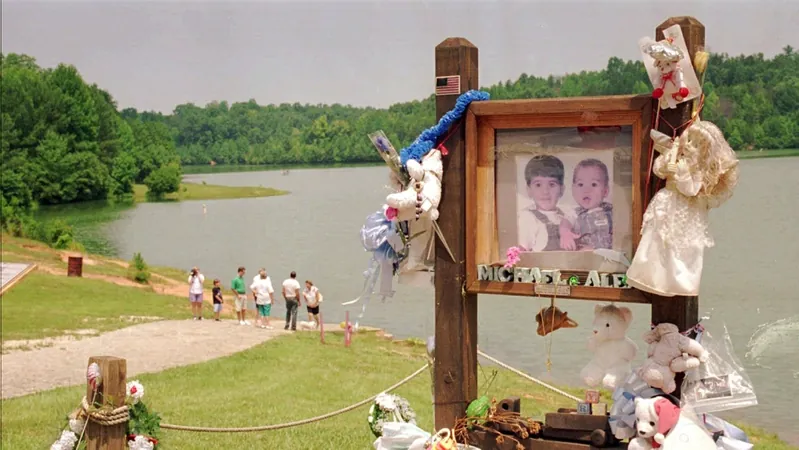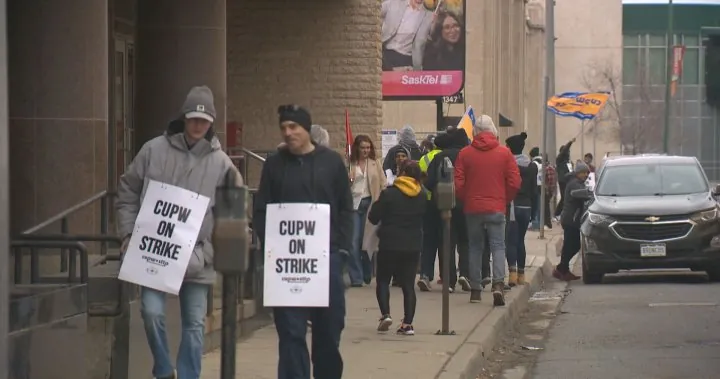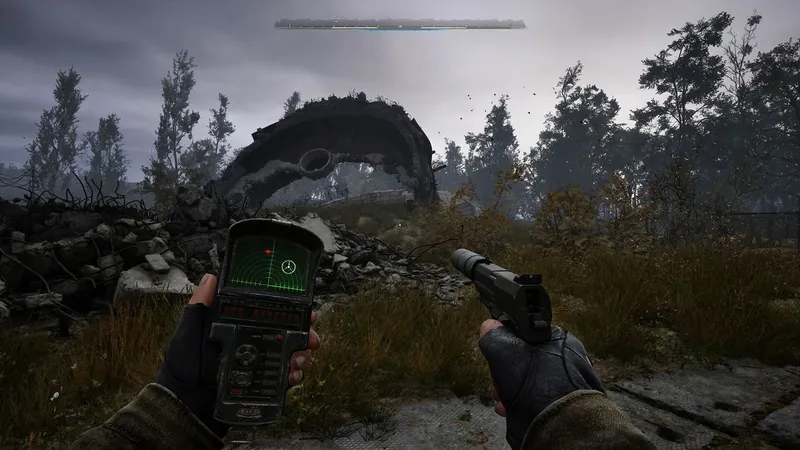
Unveiling the Shadows: The Susan Smith Case and Its Dark Legacy After 30 Years
2024-11-21
Author: Jacques
Introduction
In one of the most heart-wrenching and shocking cases in American history, the actions of Susan Smith continue to resonate nearly three decades later. In 1994, a devastating discovery was made at the bottom of a South Carolina lake: the bodies of her two young sons, Michael and Alex, still strapped in their car seats, alongside harrowing remnants of her life, including her wedding dress and a photo album.
The Deception
What unfolded was a tragic tale woven with deception and profound loss. For nine agonizing days, Smith, then just 23, deceived the nation with a harrowing story of a carjacking by a Black man, urging for the safe return of her children, who were already deceased. Investigators and the public were led on a wild goose chase, conducting searches, holding vigils, and offering any information they could muster. The community was heartbroken when the truth was finally revealed, shattering the hope so many had clung to.
Parole Attempt and Current Status
Now, 30 years later, Susan Smith, eligible for parole at 53, has attempted to plead for her own mercy. However, at a recent parole board hearing, she was met with fierce opposition from her ex-husband David Smith and a gathering of emotional witnesses, resulting in a unanimous denial of her request for release. Experts claim that her chances of parole are slim, primarily due to the powerful testimony given by victims' family members, which carries significant weight in these proceedings.
The Confession and Mental Health Context
At the heart of the case was an immediate mistrust of Smith’s account. Law enforcement quickly became aware of inconsistencies, leading to intense questioning that ultimately resulted in her confession: she had deliberately rolled her car into the lake, claiming it was meant to be a murder-suicide driven by desperation and a profound emotional crisis related to a broken relationship and deep-seated depression.
Societal Impacts and Racial Dynamics
Reflecting on the context of her actions, it’s evident that Smith was not just grappling with a failed relationship, but she also carried the weight of societal expectations and personal demons. Experts like prosecutor Tommy Pope argue that her act of throwing her children away was a desperate attempt to erase her life’s burdens.
The case also fundamentally exposed racial dynamics woven into societal fabric. Smith's initial narrative fed into a long history of harmful stereotypes of Black men as criminals, igniting an emotional wildfire that resulted in countless innocent Black men being wrongfully accused or targeted based solely on the word of a White woman. Gloria Browne-Marshall, a civil rights attorney, commented on the grievous consequences of false accusations, questioning how many lives were affected by the panic that ensued due to Smith's story.
The Haunting Legacy
Amidst the insistence of her remorse in parole hearings, the reality is that many victims' families still feel the haunt of her actions as they mourn the loss of Michael and Alex. David Smith’s heartbreaking testimony underscores an unbearable grief that lingers, emphasizing that her sentence, which could have been a death penalty, was a life in prison but seen as nowhere near enough by those who loved the boys.
As household names, Susan Smith and her boys highlight issues that extend far beyond a single tragedy—the case examines the role of mental health, the impacts of societal pressures, and the pervasive influences of race within the criminal justice system. This disturbing saga raises pertinent questions about culpability, redemption, and the systemic issues that continue to plague the nation.
In the words of prosecutor Pope, reflecting on the ripple effects of Smith's actions, “Some of the best lies are wrapped in truth.” And so, the haunting legacy of Susan Smith endures, reminding us of the depths of human despair and the need for a more humane and just society.









 Brasil (PT)
Brasil (PT)
 Canada (EN)
Canada (EN)
 Chile (ES)
Chile (ES)
 España (ES)
España (ES)
 France (FR)
France (FR)
 Hong Kong (EN)
Hong Kong (EN)
 Italia (IT)
Italia (IT)
 日本 (JA)
日本 (JA)
 Magyarország (HU)
Magyarország (HU)
 Norge (NO)
Norge (NO)
 Polska (PL)
Polska (PL)
 Schweiz (DE)
Schweiz (DE)
 Singapore (EN)
Singapore (EN)
 Sverige (SV)
Sverige (SV)
 Suomi (FI)
Suomi (FI)
 Türkiye (TR)
Türkiye (TR)